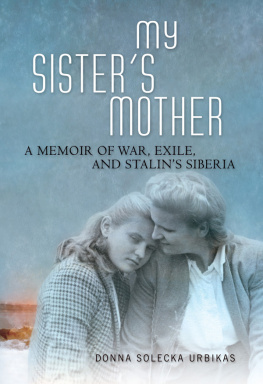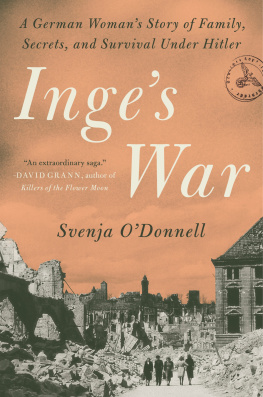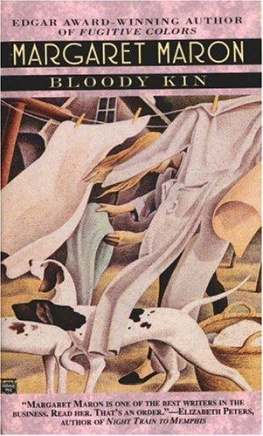Contents
About the Author
MONIKA MARON was born in Berlin in 1941. She grew up in East Germany and left for the West in 1988. The author of the novels Silent Close No. 6, Flight of Ashes, Animal Triste and The Defectors , she now lives in Berlin once again.
BRIGITTE GOLDSTEIN was born in Germany and has lived most of her life in the United States. She received a Ph.D. from New York University in Modern German History. She is a freelance literary translator, writer, and editor. She lives in Highland Park, New Jersey.
Monika Maron
PAVELS LETTERS
Translated from the German by
Brigitte Goldstein
EVER SINCE I decided to write this book, I have asked myself why now, why only now, why still now. I have known the story for as long as I can remember. It is the story of my grandparents and I have never forgotten it. The first chapter of my first book belongs to them, Pavel and Josefa. Josefa is the name of the heroine of that book and her last name is the German translation of my grandparents family name: Nadler, Iglarz in Polish.
Why should I feel that I had to justify my writing this story, about which little is certain, even now when the fate of this vanished generation, and that of their children, has been assigned to history, where it has been entombed? When nothing new can be added to the life stories such as those of Pavel and Josefa Iglarz, and certainly not by someone who is following their traces from a safe distance. Contemporaries and fellow victims of my grandparents spoke about it, their voices filled with disbelief that something like this could happen and that anybody could survive it.
Memories have their time. Some events of the past are only vaguely known, and we know that one day we will contemplate them quietly to explore them more closely. Some day, we tell ourselves, Ill get to know this in greater detail. Years, even decades, may pass, the thought crosses our mind periodically: one day we should take up this matter and remember somebody or something exactly. This, I believe, is what happened to me and the story of my grandparents.
Remembering is actually the wrong word for what I had in mind with regard to my grandparents, for in me was no submerged knowledge about them I needed to bring to light. I was familiar with the rough outlines of their story, but missing was their inner life and most of all a deeper knowledge about it on my part. For me, the essence of my grandparents was their absence. Certain was only that they once existed. They had given the world four children, three of whom were still alive. We had photographs and a few letters. But most of all, there was their death, which always made them more than just my grandparents. They were the good, the sacred part of a terrible chapter in history. The converted Jew and the converted Catholic woman, Polish immigrants in Berlin, whose lives, under different circumstances may have been merely described as being filled with hard work and love, lived in me as a minute, imaginable detail of this unimaginably cruel history. And through their death, they bequeathed to me the assurance of innocence. I was spared the childhood fear of being the progeny of murderers and torturers. I dont know if all, or at least many, children secretly wish they came from different parents and exist only at the price of not existing at all. I, for my part, was brimming with such ingratitude during the numerous crises of my childhood. I wanted to be different from what my heredity made me. And since the photograph of my grandmother, which hung in a small frame on the wall of my room, showed her to be all too obviously the mother of my mother, my choice of the only forebear from whom I was willing to be descended fell on my grandfather. That he was by origin, if not by religion, a Jew, played no role in my decision. I dont think I knew back then any more about Jews than that the Nazis had murdered them. But that my grandfather perished as a Jew, that he had owed something to life because he had been prevented from living it to its end and that I, therefore, owed him something may well have been decisive in my choice, even if only unconsciously. Maybe it was also my first attempt at inventing meaning and mystery in my own life.
I had not been to Poland very often, not even before 1981, when East Germans were permitted to travel there. The desire to get closer to my grandparents by walking the streets they might have walked on their way to school or while shopping with their parents, or along which they dragged themselves later in their lamentable condition for the last time, was, if it occurred to me at all, at most a vague thought which, even at the moment of its birth, was deferred to an uncertain future: I should sometime, some day I shall
Why was the vague some day suddenly endowed with a date?
In the summer of 1994, a team of young Dutch television reporters came to Berlin, seeking an answer to the question: When will the Germans finally become normal? They interviewed various people from various walks of life, among them my mother. While searching for old photographs, which they had requested, my mother uncovered a box of letters which she had salvaged from among the personal effects of her sister and kept in storage for eleven years without perusing them. These were the letters of my grandfather from the ghetto and letters from his children addressed to him. They evoked in my mother a long-buried mournfulness and precipitated a lasting state of confusion. These letters were unknown to her. She had no recollection of ever reading them or even of writing them herself. She learned details about which, so it seemed to her, she knew nothing. Yet she must have known about them, for that she had not read these letters was just as impossible as that she had not written those in her own handwriting.
My mother picked through the traces of her oblivion and continued to search in old papers, apparently more reliable than her memory, and thus found the correspondence between her and the German authorities, in which the then twenty-four-year-old Helene Iglarz fought her own looming deportation to Poland.
Do you have any idea why I have no recollection of this, not even the slightest? My mother, Hella, was sitting on the couch across from me, tiny, but, as she always assured us, taller than her mother, twenty years older than the latter had become. She looked as if she would like nothing better than to open her skull to search her brain for the lost knowledge.
We often sense our ability to forget merely as an inability to remember. We suspect forgetting of serving our evil and depraved nature. Forgetting means either guilt or physical decline. The arbitrariness with which something makes a decision over and against our will, whether a memory remains hidden for a while or lingers in the subterranean world of our mind or even whether it will remain sealed for ever, is unfathomable and therefore frightening. At the time my mother couldnt recall that correspondence in which her life was at stake, forgetting in the public opinion had just shrivelled to a synonym for repression and lying. However, my mothers forgetting was innocent, at least that is how it had to be presented to the world. And yet my mother considered it to be blameworthy, at the very least inadmissible. It was then that we decided to go to Ostrow-Mazowiecka, my grandfathers birthplace.
A short while before, a newspaper had invited me to go anywhere on the globe, to a place I had always wanted to see, and write about it. Travelling in and of itself is not one of my great passions. In general, I prefer to travel to places where I can visit friends and acquaintances and where I know where to find the milk in the local supermarket. I couldnt think of any town between the North and South Pole that would have been a dignified response to that generous offer. But slowly the old promise that I had made to myself and my dead grandparents began to reawaken in my mind: to go to Kurow, near Lodz, and to Ostrow-Mazowiecka, not to find anything specific, but just to go there and imagine what their life was like, to search for the thread that connects my life to theirs.





